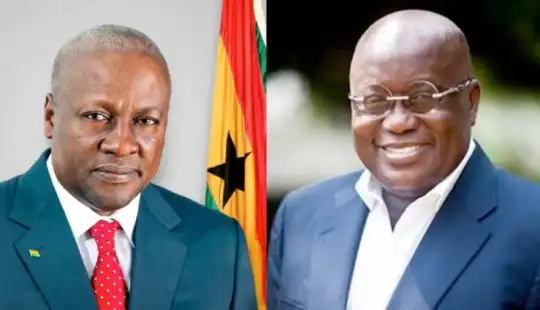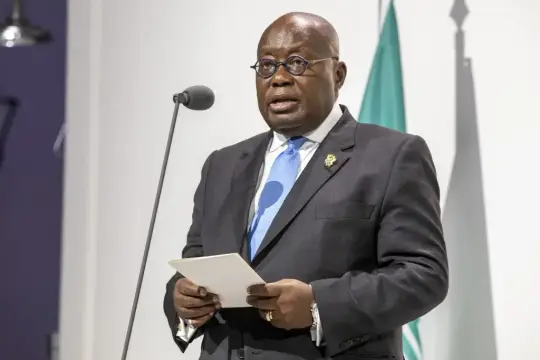
Former President John Dramani Mahama, the flagbearer of the National Democratic Congress (NDC), has directed pointed criticism at President Nana Addo Dankwa Akufo-Addo during one of his recent campaign rallies. In remarks that have sparked widespread reactions, Mahama accused the president of dishonesty and urged him to prioritize moral accountability, particularly given his advanced age.
In a video circulated widely on social media and reported by various platforms, including Gh Page, Mahama addressed his concerns about what he described as persistent untruths from the president. According to the former president, lying is a grave moral failing that could jeopardize one's prospects for eternal salvation. He suggested that at President Akufo-Addo's age, he should focus on preparing for the afterlife rather than engaging in deceit.

"At your age, what you should be doing is preparing to go to heaven," Mahama said. He cautioned that dishonesty could lead to undesirable spiritual consequences. "People who lie find it extremely difficult to go to heaven," he added, implying that the president's alleged actions could have eternal repercussions.
Mahama's comments were framed as both advice and criticism, blending political rhetoric with moral counsel. The former president subtly pointed out the inevitability of death, suggesting that President Akufo-Addo should now prioritize his spiritual readiness over political pursuits. Without directly mentioning the president's mortality, Mahama's words carried an undertone of finality, emphasizing the need for introspection and repentance.
The statement has drawn mixed reactions from the public and political observers. Supporters of Mahama argue that his comments highlight the need for accountability and integrity in leadership, especially from someone holding the highest office in the land. They view his remarks as a reminder that political leaders should model exemplary behavior and serve as moral compasses for society.
On the other hand, critics have condemned Mahama's remarks as unnecessarily harsh and disrespectful. They argue that invoking mortality in political discourse crosses a line and detracts from the substantive issues that should dominate Ghana's political landscape. For some, the comments reflect the increasingly personal nature of political rivalries in the country, where debates often shift from policies to personalities.
This exchange adds to the growing tensions between Ghana's two main political parties, the New Patriotic Party (NPP) and the NDC, as the country approaches a critical election season. Both leaders have been vocal in their criticisms of each other, with their campaign messages reflecting deep-seated ideological and personal differences.

For Mahama, the remarks were part of a broader critique of the Akufo-Addo administration, which he and the NDC have accused of mismanaging the country's economy and failing to deliver on key promises. By framing his criticism within a moral context, Mahama sought to underline the ethical implications of governance failures and what he perceives as the president's lack of truthfulness.
As Ghana gears up for another electoral showdown, such statements underscore the high stakes and the intensity of political competition. While Mahama's comments may resonate with his supporters, they also risk alienating voters who prefer a more conciliatory and issue-focused campaign approach. The coming weeks will reveal how these remarks influence public sentiment and the broader electoral narrative.








No comments yet
Be the first to share your thoughts!